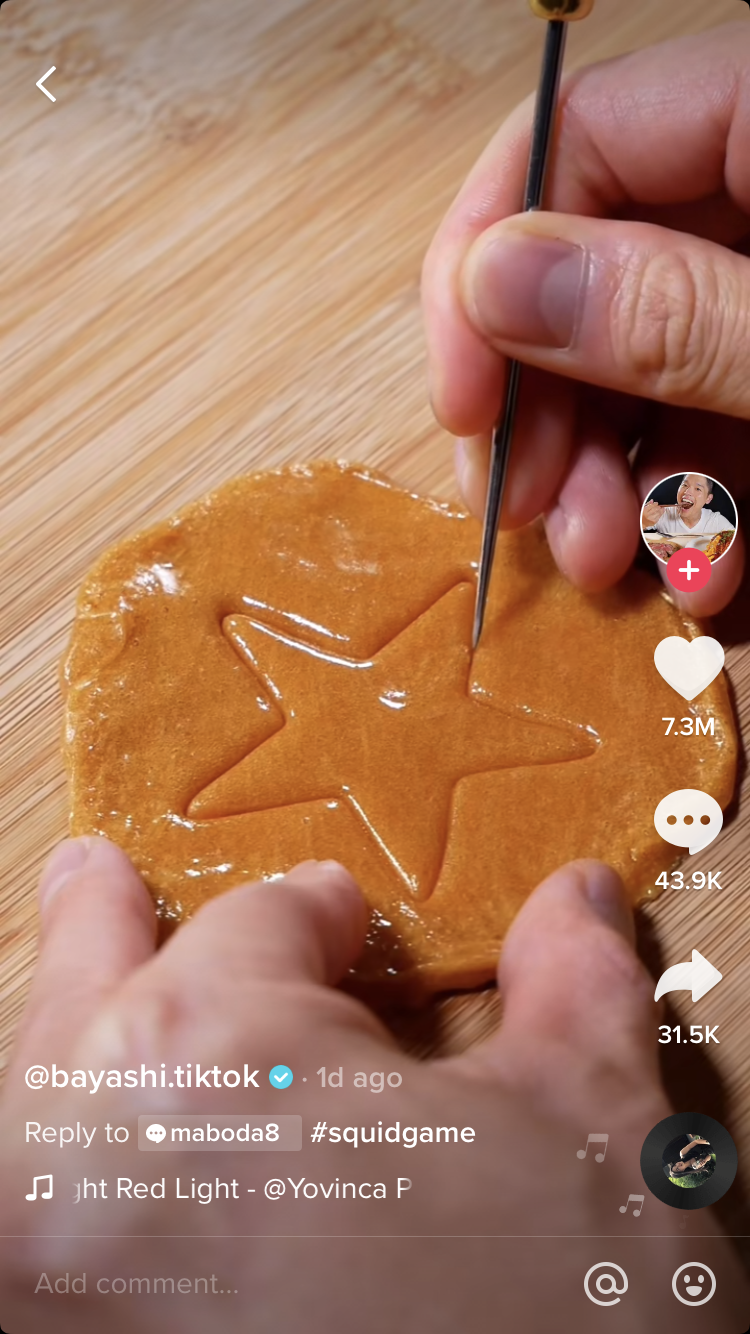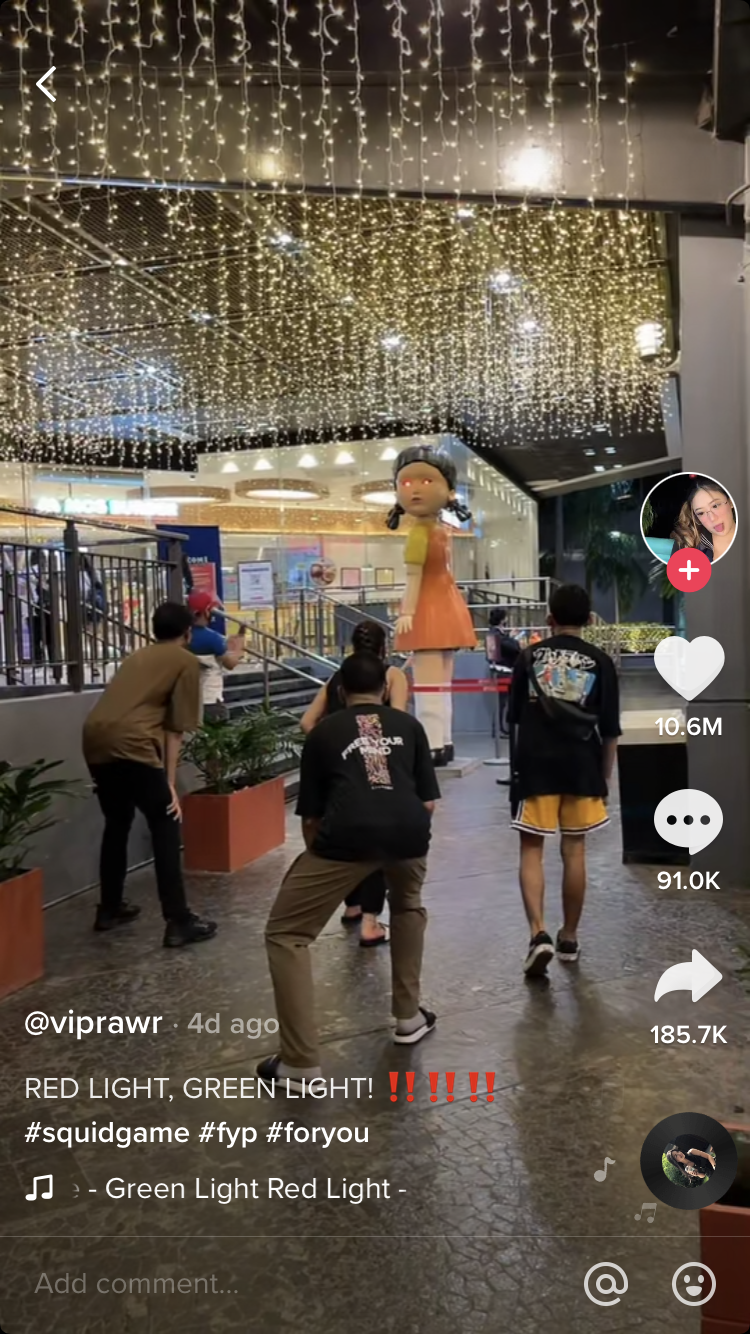🦑 Squid Game ignites a cultural tidal wave
Netflix co-founder Ted Sarandos in his talk at the Code conference in LA said:
“Squid Game will definitely be our biggest non-English language show in the world, for sure, and there’s a very good chance it’s going to be our biggest show ever”.
Squid Game has taken social media and the gaming world by storm, quite literally overnight. A Korean TV series, Squid Game is a dystopian thriller reminiscent of The Hunger Games, but somehow with higher stakes. Here’s a description by Netflix:
“Hundreds of cash-strapped players accept a strange invitation to compete in children’s games. Inside, a tempting prize awaits — with deadly high stakes.”
Let’s take a look at its impact across culture in a matter of days, and what it means for the future of viral content.
Squid Game Season 1 can be streamed on Netflix
The earthquake
Searches and mentions of Squid Game across YouTube, Google and Snapchat are exponential over the last week. Take a look at the sharp rise in searches over the last few days, and compare it to two of the more popular international shows Bridgerton and Money Heist. What you see below is beyond exponential growth; it’s nearly an undefinable slope.
Just four days ago, the show entered the top 10, and 2 days later became the number one show. The show already has accumulated 16B+ views of #squidgame hashtags on TikTok, a number that is nearly double the views of Bridgerton related hashtags. And for Squid Game, that number of views is only growing faster.
The cultural waves
TikTok trends
The show has inspired two TikTok trends, both playing off of two of the games featured on the show. “Red Light, Green Light”, a game many across the world played (in variations) as kids, and the Dalgona candy game, have inspired creators across platforms to experiment with the games featured in the show.
Roblox games
The beauty of Roblox is it allows gaming to match the speed of culture. By putting the power to create in the hands of its users, it enables shows like Squid Game to be recreated nearly instantly on digital platforms. YouTube and TikTok are flooded with people trying to show off their new Roblox games, with each game in the show finding a spot in the digital world.
Roblox gives users the chance to play these games themselves, with no risk of death.
This phenomenon enabled by the platform taps into and shines an even brighter spotlight on one of the most powerful behavioral identities of this generation:
Advances in technology have enabled us to live separate lives all at once. YouTube day in the life videos allow us to experience the lives of others without leaving our beds. TikTok has removed the filter of Instagram’s fakeness and brought us closer to the creators we love most in an authentic way.
Roblox takes that one step further. With Roblox, we move closer to replicating and downloading replayable life experiences. The deep and burning desire to immerse ourselves in the world of our favorite shows and movies is now a reality, and Squid Game may be the first show to truly demonstrate this.
What’s next
Consider this email an alert, rather than the full investigation. My hypothesis is that this show and its cultural impact represent massive big-picture insights that extend beyond trending content and games; I believe this moment will give us a powerful sneak peek into the future of the metaverse and its applications for Generation Z.




